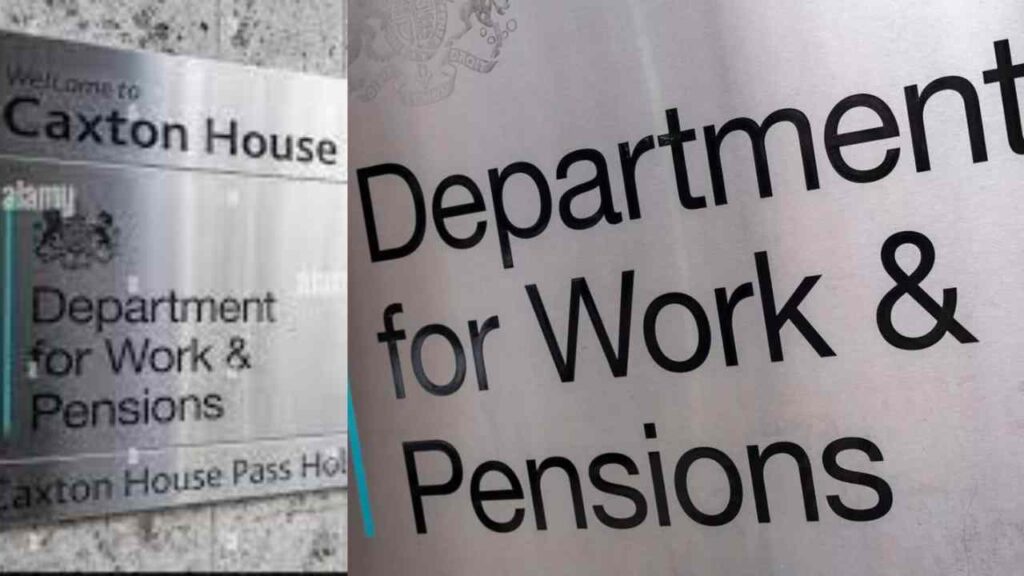The Department for Work and Pensions has sent shockwaves through Britain’s welfare system with an unprecedented crackdown on benefit fraud, warning the nation’s 24 million recipients that cheating will result in prosecution “to the full extent of the law.”
The stern message follows a string of high-profile court cases that have seen fraudsters handed increasingly severe prison sentences, culminating in this week’s jailing of a Manchester woman who pocketed £110,000 over a decade of systematic deception.
A Decade of Deception Exposed
The case that triggered the government’s hardline stance centers on a 51-year-old Manchester resident whose decade-long fraud scheme finally unraveled thanks to an anonymous whistleblower. Between 2013 and 2023, she systematically claimed Job Seeker’s Allowance, Employment Support Allowance, Housing Benefit, and Council Tax Support while concealing crucial changes to her living situation.
Her 20-month prison sentence, handed down at Manchester Magistrates’ Court on August 12 after pleading guilty to four counts of benefit fraud, represents more than just punishment—it’s become the government’s poster case for its new zero-tolerance approach.
The investigation, sparked by a tip-off to authorities, involved a joint operation between the DWP’s Regional Investigations team and Manchester City Council, demonstrating the increasingly sophisticated methods being deployed to catch benefit cheats.
Record Numbers, Rising Stakes
The timing of this crackdown is significant. With 24 million Britons now receiving at least one government benefit—including a record-breaking eight million on Universal Credit—the stakes have never been higher. The sheer scale of the welfare system has made it both more vital for genuine claimants and more attractive to potential fraudsters.
Minister for Transformation Andrew Western made the government’s position crystal clear: “Our social security system exists to support the most vulnerable in society and those genuinely in need. We will continue to take legal action to fight those trying to scam the system, and if anyone thinks they can get away with it, this case shows they will be brought to justice.”
A Pattern of Prosecutions
The Manchester case is far from isolated. Recent months have witnessed a dramatic surge in successful fraud prosecutions that paint a picture of increasingly bold attempts to cheat the system—and increasingly severe consequences for those caught.
In June alone, the courts processed multiple major cases. A Port Talbot couple received suspended sentences ranging from six months to two years after fraudulently claiming £48,517 in Universal Credit while hiding their capital assets. The same month saw a Swansea woman given a six-month suspended sentence for fabricating childcare invoices to claim costs she never incurred.
Perhaps most shocking was the case of a St Helens couple who each received two-year prison sentences for orchestrating a £268,000 fraud involving bogus Personal Independence Payment claims, fake Local Authority Direct Payments, and Employment Support Allowance fraud—all while using false identities and concealing their relationship status.
The Technology Behind the Crackdown
These successful prosecutions reflect more than just luck or tip-offs. They represent the fruits of a sophisticated technological revolution in fraud detection that the government has been quietly implementing across the benefits system.
The DWP has significantly enhanced its capacity to cross-reference data, detect anomalies, and identify suspicious patterns that might have gone unnoticed in previous years. Advanced analytics now flag potential fraud cases automatically, while improved inter-agency cooperation means local councils, HMRC, and other government departments share information more effectively than ever before.
Councillor Rabnawaz Akbar from Manchester City Council highlighted this collaborative approach: “This case was an example of how the trust inherent in our benefits system was abused for personal gain. I would like to thank our officers for their tireless work to detect this fraud, as well as our colleagues in the DWP for ensuring a successful prosecution.”

The £1.5 Billion Solution
The government’s anti-fraud offensive has crystallized in the Public Authorities (Fraud, Error and Recovery) Bill, legislation designed to save taxpayers £1.5 billion over five years. This isn’t just about punishment—it’s about prevention, detection, and recovery on an industrial scale.
The bill strengthens government powers to detect both deliberate fraud and genuine mistakes more quickly, potentially catching problems before they escalate into the kind of decade-long schemes that characterized the Manchester case.
Impact on Genuine Claimants
For the 24 million Britons who legitimately rely on government benefits, the message is complex. While increased scrutiny might mean more paperwork, additional checks, and potentially longer processing times, it also promises a more sustainable system that protects the support they depend upon.
The government’s emphasis on protecting “genuine claimants” suggests awareness that overzealous enforcement could harm those the system is designed to help. However, the clear message is that any attempt to game the system will be met with serious consequences.
The Human Cost
Behind the statistics and policy announcements lie real human stories. The Manchester woman now faces 20 months in prison, a criminal record, and the requirement to repay £110,000—consequences that will likely affect her for years to come.
Yet government officials argue that the human cost of fraud extends far beyond individual fraudsters. Every pound stolen from the benefits system is a pound taken from genuine claimants who desperately need support, making aggressive enforcement a moral imperative rather than merely a financial one.
Looking Forward
As the government’s anti-fraud technology continues to evolve and inter-agency cooperation deepens, potential fraudsters face an increasingly hostile environment. The days when someone could systematically cheat the benefits system for a decade may be drawing to a close.
The message from these recent cases is unambiguous: benefit fraud is no longer a low-risk, high-reward crime. With prison sentences mounting and detection capabilities improving, the government appears determined to make fraud both difficult to execute and expensive to attempt.
For Britain’s 24 million benefit recipients, the new reality is clear—the system is watching, and the consequences of gaming it have never been more severe. The question now is whether this unprecedented crackdown will succeed in deterring fraud while preserving support for those who genuinely need it.
As one government official put it: “If you think you can get away with it, this case shows you will be brought to justice.” In an era of advanced data analytics and enhanced inter-agency cooperation, that warning carries more weight than ever before.






